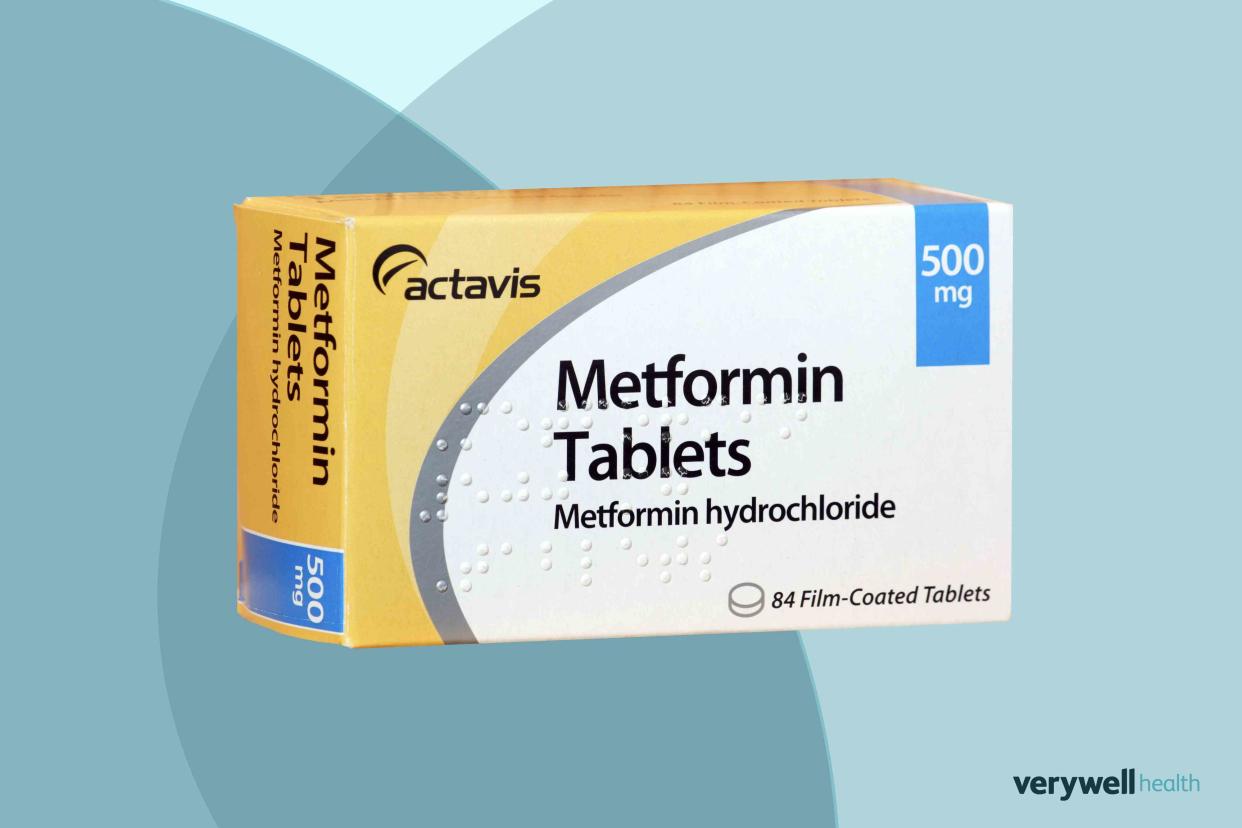Metformin Linked to a Lower Risk of Certain GI Cancers, Study Finds

Fact checked by Nick Blackmer
Key Takeaways
Metformin is a common type 2 diabetes medication.
Research suggests that metformin is associated with lower rates of certain GI cancers among people with diabetes.
More research and clinical trials would be needed to determine whether the drug could be repurposed for cancer prevention and whether it would benefit patients without diabetes.
Metformin is primarily known as a diabetes drug. It’s inexpensive, safe, and effective at lowering blood sugar levels. Recent research suggests that metformin may have the potential to be repurposed for other diseases, including cancer.
Diabetes has been linked to an increased risk of several gastrointestinal cancers, including liver, colorectal, and pancreatic cancers.A recent systemic review of 166 studies found that metformin was associated with a reduced risk of these three types of cancers among patients with diabetes.
Could this popular diabetes drug be a cancer prevention tool?
Learn More: Understanding the Different Types of Cancer
How Might Metformin Protect Against Cancer?
Metformin is a first-line treatment for type 2 diabetes in adults and children aged 10 and above. This medication is usually prescribed along with other blood sugar management strategies, including diet and exercise. It hampers glucose production in the liver, increases the amount of glucose taken in by the cells, and increases insulin sensitivity.
Diabetes has been linked to an increased risk of several cancers, including liver, colorectal, and pancreatic cancers.
While the exact mechanism is unknown, metformin is believed to inhibit the formulation of glucose from non-carbohydrate sources in the body (gluconeogenesis). Perhaps due to its ability to lower glucose levels and potential anti-inflammatory properties, metformin “creates unfavorable conditions for cancer cells,” said Junaid Arshad, MD, an assistant professor of medicine at the University of Arizona.
Another reason metformin is associated with a lower GI cancer risk is its role in activating an enzyme called AMP-activated protein kinase (AMPK). Activated AMPK leads to reduced glucose production in the liver and increased glucose uptake in the body’s tissues.
AMPK may also affect cancer risk because it responds to metabolic stress within cells, according to Jeffrey Meyerhardt, MD, MPH, chief clinical research officer and co-director of the Colon and Rectal Cancer Center at the Dana-Farber Cancer Institute.
Related: GI Stromal Tumors
The idea that metformin could serve as a preventative cancer drug gained popularity following a 2005 study, which indicated a reduced risk of cancer among type 2 diabetes patients treated with the drug.
"There are many observational studies that have shown associations of metformin with various cancers," Meyerhardt said. For example, a 2014 analysis linked metformin to a 31% reduced overall incidence of cancer.
Although these studies suggest a possible link between metformin and cancer risk, Meyerhardt said that randomized trials to date have not shown a definitive reduction in cancer.
“Most of these are trials in diabetics and will have flaws in the length of time observing for cancer, but to date have shown no reductions in cancer,” Meyerhardt said.
This means more research is needed to better understand whether metformin really has the potential for cancer prevention.
Learn More: Is There Medication to Prevent Breast Cancer?
What’s Next for Metformin Research?
Right now, the strongest evidence in support of metformin’s anti-cancer potential comes from studies in people living with diabetes. If the drug proves to lower GI cancer risk, Arshad said, it would most likely be used in patients with type 2 diabetes—at least to start.
“The next step will be to test the drug in patients with diabetes mellitus, patients with high risk of developing cancers, such as those with a family history and those with high-risk genes,” he added.
If metformin is to be used in people without diabetes, Arshad said a lot more research is required, especially high-quality clinical trials. But the investment could be worth it, especially if the science backs up the theories.
“Given metformin’s established safety profile and broad availability, efforts to enhance its efficacy in cancer prevention remain viable alongside exploring other therapeutic options, so it’s a balancing act between potential benefits and resource allocation,” Arshad said.
Read Next: Common Signs Metformin Is Not Working and What to Do
What This Means For You
Metformin, a common diabetes drug, has been associated with a lower risk of GI cancers. More high-quality research and clinical trials will need to be conducted to confirm its anti-cancer effect.
Read the original article on Verywell Health.

